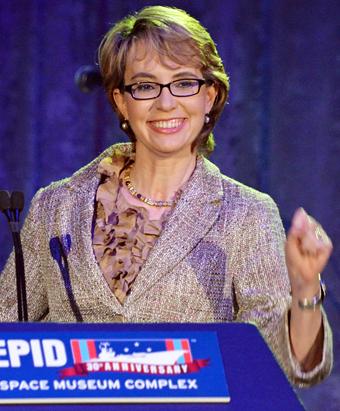Arizona Special Election: A Closer Look

Mike Coppola/Getty Images
Arizonans in the state's 8th Congressional District today will cast their votes in a special election to fill the seat vacated by former Rep. Gabrielle Giffords' retirement. The race between former Giffords district director Ron Barber and retired Marine Jesse Kelly is expected to be close, and the outcome is anyone's guess.
The district is located in the southeastern portion of the state and encompasses parts of Tucson.
Barber, 66, has had the endorsement of his former boss from the beginning of the race. He ultimately ran uncontested in the primary, and has had relatively strong fundraising, taking in about $1.2 million, according to his Federal Election Commission filings. Barber was also injured in the assassination attempt on Giffords in January 2011 and has recovered from being shot in the leg and the cheek.
Kelly, 30, faced a contested primary against three opponents. His fundraising has lagged behind Barber's, raising about $700,000, according to FEC filings. But the political demographics of the district give the advantage to Kelly. The district leans Republicans, going red in the presidential elections in 2008 and 2004 and boasting a higher number of registered Republicans than Democrats going into the special election.
Republicans and Democrats and respectively aligned super PAC's have invested in the race. The Democratic Congressional Campaign Committee, which oversees Democratic House races, has spent a little more than $425,000 on ad buys, while their Republican counterpart, the National Republican Congressional Committee, has spent a little more than $840,000 on media, according to their respective financial disclosures.
The Democratically aligned super PAC House Majority PAC, and the Republican aligned American Crossroads have both waded into the race, as has the Tea Party-affiliated FreedomWorks, and the establishment GOP group American Action Network.
Giffords campaigned for Barber this the weekend leading up to the election, appearing alongside him at a get-out-the-vote event Saturday in Tucson. She has had little presence in the course of the campaign otherwise, and Arizonans say even her legacy hasn't appeared much in the messaging.
"I would have thought it would have loomed larger, but it really has not," said Brinton Milward, director for the National Institute for Civil Discourse in Tucson, which was founded after the grocery store shooting. "I don't know why."
Instead, the two men have mostly focused their respective dialogues on issues such as Social Security and Medicaid. The two candidates have been cordial to one another, and the race in general has been relatively civil.
Polling indicates that the race will likely be close. Many vote, more than 132,000, have already been cast through early voting, which began May 17. The district boasts 414,494 registered voters, meaning that more than one-quarter have voted. State officials expect that early voting could account for almost two-thirds of the total votes.
Whichever candidate emerges victorious from today's election will have little time to get acclimated to his new job. The congressman will have to run again in the general election in November, this time in a new district - Congressional District 2 - which is viewed as more favorable to Democrats. Before November rolls around though, the then-congressman must face an August primary. Both men have already filed for the August 28 contest, according to the Arizona Secretary of State's office.